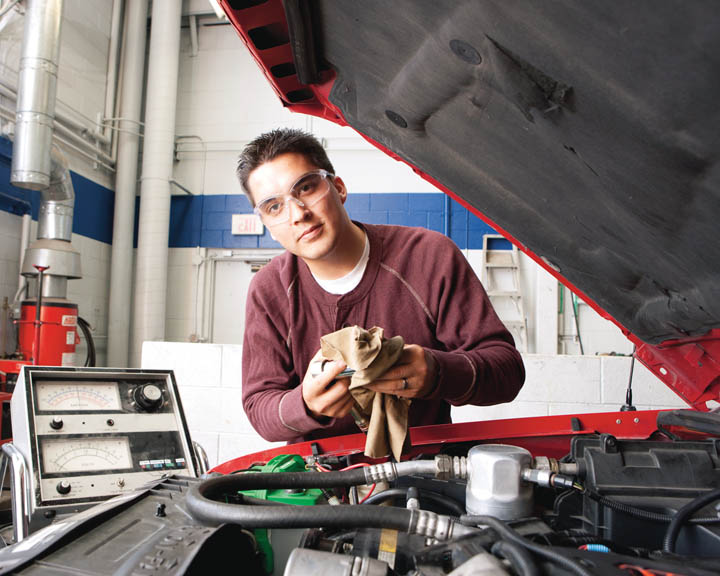The ethic of work (being diligent) is the price of success and is essential in the building of character. The natural immune system to protect us from the consequences of idleness is simple: work, work, work. That is the key. Work is and will always be the standard of excellence in any chosen field. From the pervasive foundational farms of yesterday to the superstar athletes today, the work ethic is the difference between the super-great and all the rest. It seems that too many want the easy road, the instant and the now. Great people and super performers all come from a different place and reflect a different quality: the ability to work hard and work smart. How do we learn good work habits? Where can we practice good work habits? In the early years of this country most people lived in rural farming communities. Work was simply part of life. Now with large cities and affluence, it seems as though many youth today do not enjoy the blessing of work in their lives. What can be done to redress this problem? It is up to the parents and to the leaders of church, community, and nation to show a better example.
“Work hard educationally and in your vocation. Put your trust in the Lord, have faith, and it will work out. The Lord never gives a commandment without providing the means to accomplish it” (Ezra Taft Benson, Come, Listen to a Prophet’s Voice [Salt Lake City: Deseret Book Co., 1990], 53).
“The foundation of self-reliance is hard work. Parents should teach their children that work is the prerequisite to achievement and success in every worthwhile endeavor. Children of legal age should secure productive employment and begin to move away from dependence on parents. None of us should expect others to provide for us anything that we can provide for ourselves” (Joseph B. Wirthlin, Finding Peace in Our Lives [Salt Lake City: Deseret Book Co., 1995], 44).
Here are five things to consider to improve your work ethic and to help others learn to work:
1. How you view your work is just as important for the outcome as your performance is.
- Look at work as a key part of the natural law of consequences. If you desire certain outcomes, rewards, and benefits, then you can work to obtain them. In this way, work is not enslaving, but liberating, for it is the doorway to the freedoms you desire.
- See work as something you do one day at a time. Don’t work hard all your life. just today and each day. Keep your eye on the goal, but bite your tasks off one day at a time.
- See work as the fulcrum of self-confidence. Your self-esteem always gets a boost after a good, hard day of work.
2. Work smart,as well as hard.
- Work toward meaningful goals. “We work to become, not to acquire,” said Elbert Hubbard.
- Know your place of importance and understand how you fit in with the overall vision.
- Focus on effectiveness and productivity. Always make your best effort part of your work ethic.
- Concentrate and focus. When working diligently, your mind is focused productively on the task, which is crucial for optimum performance.
3. Choose to do what you love and love what you do.
- Seek to have a professional involvement that you find stimulating and rewarding, or make it so by bringing the right attitude to the workplace.
4. Govern your life with balance.
- Set a good example for your family by working hard, but put balance in your life so that you also have fun with them and enjoy life to the full.
- Have a diversified “work portfolio”—Spread your “work ethic” evenly over all the important facets of your life: personal development, career, family, community service, and spiritual development.
- Be careful of the possible obsession to work. Some people actually become so attached to their work that all other things in life are put on hold.
5. Teach others the principles of work.
- Teach your family that desirable rewards require hard effort. Don’t give them the world; rather, show them how to earn it.
- Give children opportunities to work. It is your responsibility to help them learn to work.
- Praise often. People always work better with praise and appreciation.
Thomas Jefferson observed: “I’m a great believer in luck, and I find that the harder I work the more I have of it.” The ethic of work truly needs to be re-established. The problem of idleness is manifest all around us. The blessings of work need to be better understood by all, especially by our youth. Those who learn this early are outstanding students and better employees. Children who learn this lesson are far less likely to misbehave and will at the same time achieve at a greater level. Work is key to success and accomplishment in all human endeavor, and “the laborer is worthy of his hire” (Luke 10:7).
This article has been adapted from What We Need to Know and Do, by Ed J. Pinegar and Richard J. Allen.

